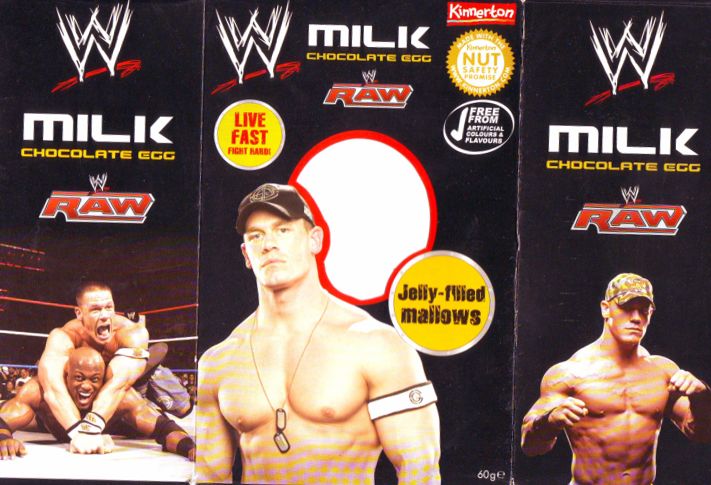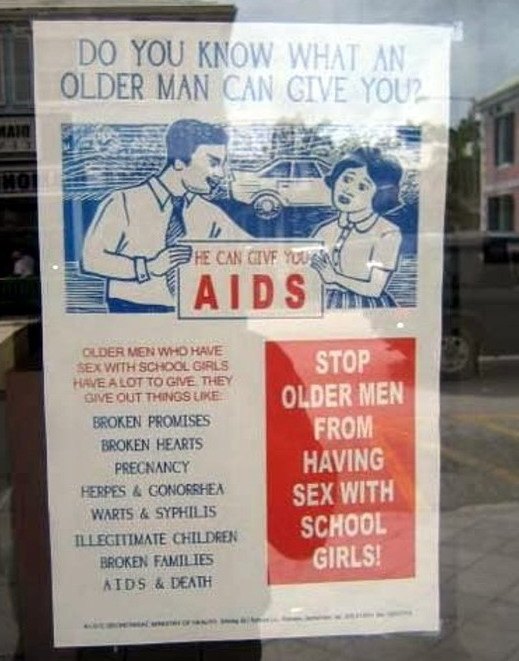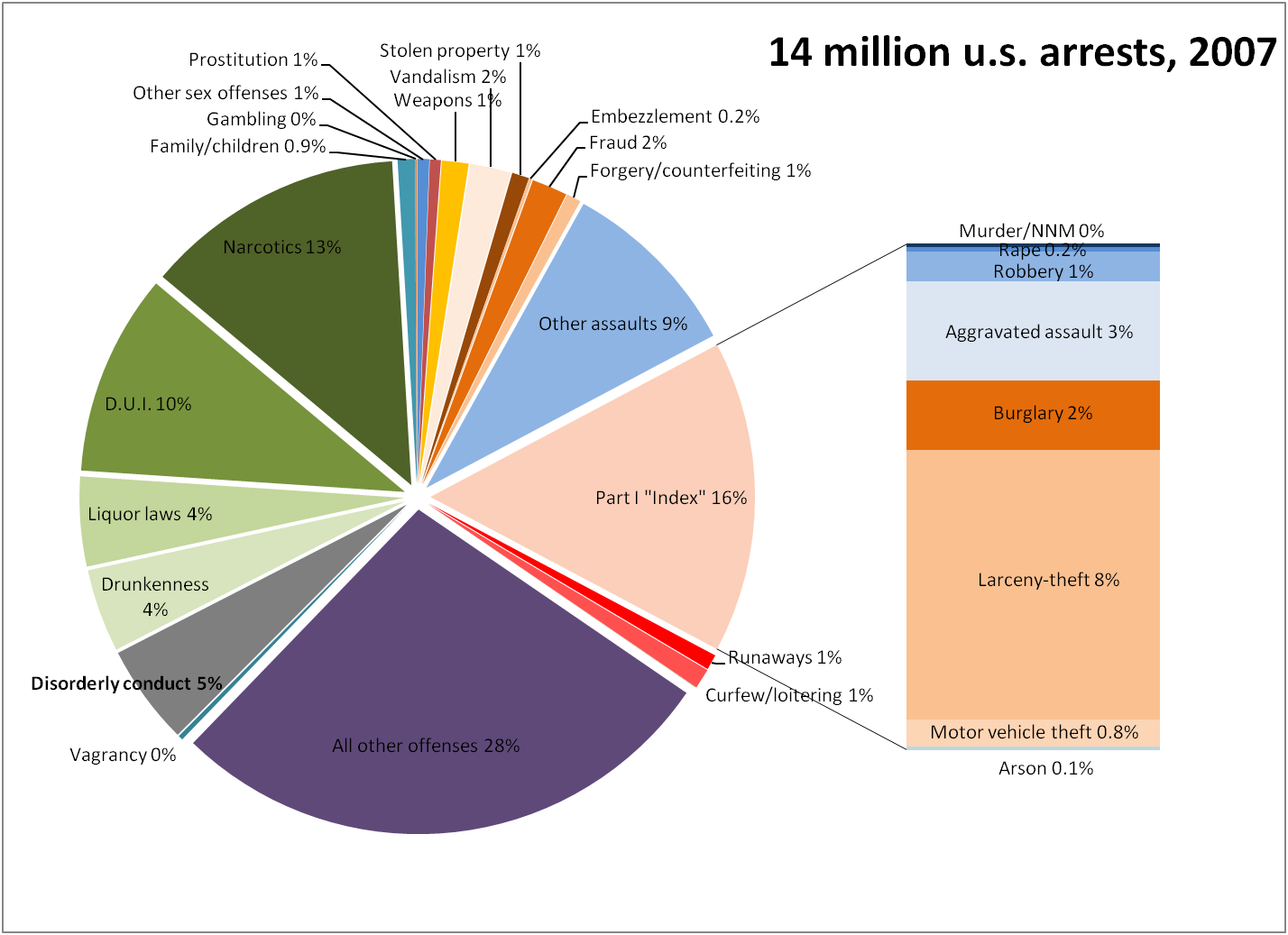I could make some sociological comment about the linking of the marketing for Easter candy and professional wrestling… but really I just think this is hilarious. Not only is it a linking of the marketing of Easter candy and professional wrestling (go, Jesus, go?), but there is something so wrong (or is it so right?) about the proximity of the words “EGG” and “RAW” (NOT appetizing) and also the phrase “Jelly-filled mallows” (so soft and sweet!) next to the ripped, muscle-bound dude in the middle. I couldn’t make this stuff up.

Also in wrestling: No Nipples Allowed!!!
(Image at CMM News.)





